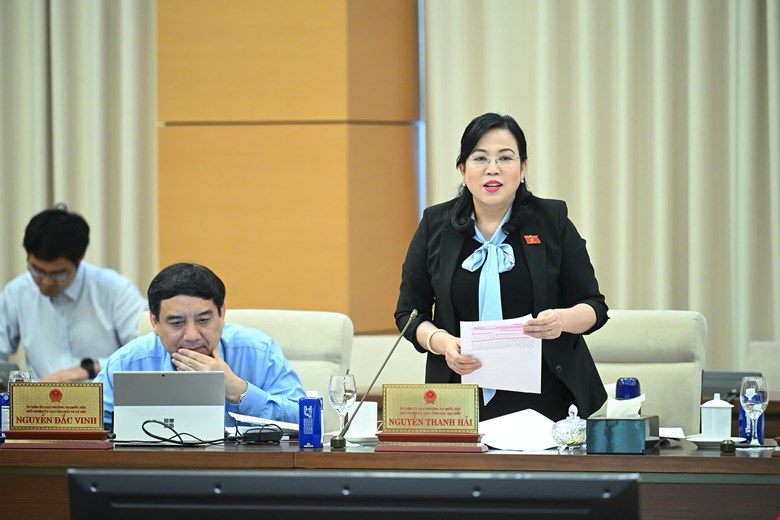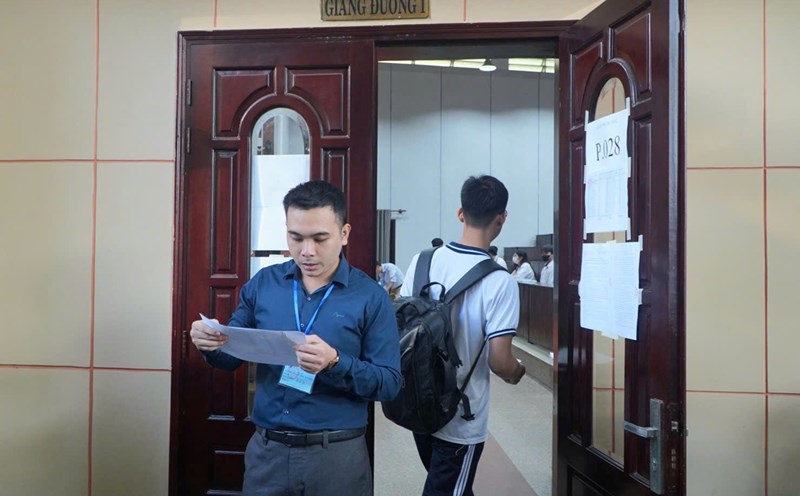From the case of fake milk and fake rice, it is necessary to maintain regulations on declaration of compliance
On the morning of June 3, the National Assembly Standing Committee gave its opinion on the reception, explanation, and revision of the draft Law amending and supplementing a number of articles of the Law on Technical Standards and Regulations.
Chairman of the Delegation Work Committee Nguyen Thanh Hai suggested reviewing, explaining, and clarifying a number of recommendations of delegates related to state management regulations on activities in the field of technical standards and regulations.
She suggested considering and adding more clear regulations on the assignment of responsibilities between the Ministry of Science and Technology and specialized management ministries, especially in post-inspections to announce results of compliance assessment and announce products in accordance with standards to avoid overlap, overlap but omission.

The Chairman of the Delegation Work Committee gave an example of recent post-inspections related to food, fake milk, fake medicine, functional foods, etc., the role of each specialized ministry related to that field such as the Ministry of Industry and Trade, the Ministry of Health, but the role of the Ministry of Science and Technology is to connect.
Because this is a ministry or state management agency of technical standards. In which, what is advertised as a fake product must be due to technical standards of the Ministry of Science and Technology.
Regarding the announcement of the regulations, Chairman Nguyen Thanh Hai said that there are currently some opinions suggesting that the regulation on announcing the regulations should be removed.
However, according to her, it is necessary to retain and adjust the content of the procedure for declaring the regulations in the direction of reviewing and updating the standards system as quickly as possible, in harmony with international standards. In particular, it is necessary to electronically organize the consistent announcement process.
The purpose of this is very good, important but there are current shortcomings due to the organization causing inconvenience to businesses, overlapping between management ministries and branches, lack of transparency and possibly negative results, lack of inspection after announcement.
The cases that the authorities have been investigating and reporting in the press in recent times such as fake milk, fake rice, fake medicine... show that the quality of goods associated with protecting consumer rights, protecting people's health and lives needs to continue to be paid attention to.
Chairman Nguyen Thanh Hai emphasized that these are reasons why compliance standards cannot be abolished. So it is necessary to strengthen inspection and supervision to avoid arising administrative procedures that cause inconvenience to businesses, or create opportunities for profiteering and corruption.
Responsible for the problem of counterfeit and poor quality goods
Speaking, Politburo member and National Assembly Chairman Tran Thanh Man said that the draft law is still in many overlaps, long-term and "blind". Therefore, it is necessary to carefully review each clause, article, and chapter in the law.
The National Assembly Chairman emphasized that the biggest difficulty at present is the prolonged, prolonged, and slow order and procedures for people and businesses. Therefore, it is necessary to review, assigning the Government to regulate what is under the Government's authority; the law only ensures the main framework and edge.
The National Assembly Chairman also cited that when the problem of counterfeit, fake, counterfeit, and poor quality goods occurs, no agency is responsible. Therefore, when promulgating this law, the responsibilities of the National Assembly, the Government, and relevant ministries and branches must be clearly understood to be handled.
After reading all the comments of the delegates, the National Assembly Chairman emphasized the need to focus on increasing transparency, feasibility and the participation of businesses in developing and applying standards and regulations.










